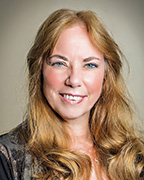
Technology advances are always great - or are they? - by Maria Hopkins
I’ve been thinking a lot lately about whether we are starting to go too far with computers, technology and automation. When I began my appraisal career there were no computers and everything was handwritten then typed by a team of typists. Some worked during the day, some at night. I paid more people instead of more for hardware, software licenses and IT. Profits were higher then than now as appraisal fees never increased enough to compensate. Of course, in order to compete and stay in business one must always adapt to changes and appraisals sometimes can be done faster (but not always). The easier access to more data is great with much more available online. Recently the appraisal form itself and the format of it has been automated more than before with the Collateral Underwriting (CU) being implemented by the secondary market. But now many of the appraisal management companies (AMCs) have begun to require more automation at the stage the appraisal is uploaded to their website which is now I believe going overboard and having negative consequences.
Our housing in N.E. is diverse. Every house is a little different than every other house most of the time. To do a good job appraising houses in our area, the appraiser must do what the buyers are doing when they compare houses and decide what to buy and how much to pay. They look at the basic bones of the house but also look at the upgrades and cosmetic presentation of the house. Buyers today love the newest materials and want instant gratification, therefore pay a lot more for houses that have those desirable materials and are cosmetically updated. They are also interested in energy efficiency but may not pay the true original cost on resale to get it. This is the newest factor that appraisers are struggling with and those appraisers who belong to the Mass. Board of Real Estate Appraisers are currently engaged in ongoing discussion of solar and how it is impacting value and how to handle it in their appraisal assignments. That’s one of the great things about belonging to the MBREA is that you can share and learn from your colleagues as we are all in this together. And meetings where you might actually get to interact with your peers are few and far between so “The Forum” (our chat room) is absolutely invaluable. The automated submission and review process for many of the AMCs is long and tedious and I really feel has gone to extreme. It has often eliminated the profit that the assignment should have had. Now you could argue that if the appraisal was perfect this would not be the case. But it’s kind of like trying to fit a square peg in a round hole. The subject and the comparable sales are what they are and require adjustments in order to get an accurate value. (What happened to that being the most important thing?) Everything just can’t be bracketed or we would need 15 comparable sales for every appraisal. Bracketing is when you find a sale that is superior for a certain feature compared to the subject under appraisal and one sale that is inferior so that you can try and show support for an adjustment. There are so many features that must be considered like location, living area, basement area, quality, condition, garages, etc. that the appraiser could spend forever on an appraisal. The appraiser is asked to add comment after comment about everything that is not round about the square property that is being appraised. A human being reading a report and using common sense can do a much better job reviewing an appraisal than a computer. It is getting so difficult for my administrative staff to get the appraisals out to the client that I sometimes have a mutiny on my hands and these are experienced competent people. Training someone new has become a nightmare no matter how brilliant they are because it is becoming that difficult to be this automated.
There are almost always some negative consequences to every new idea that sounds good in theory until you actually put it into practice. It happens with every regulation, every law and every rule. It is the consequence of change and the continuous search for something better. I think we have gone from a balance of people working with computers to trying to replace people with computers who will never be as good as people.
Maria Hopkins, SRA,RA, is president of Maria Hopkins Associates, Spencer, Mass.
